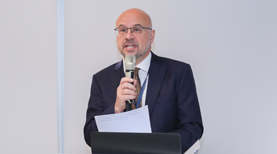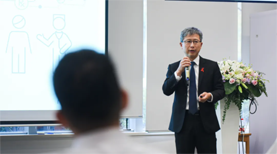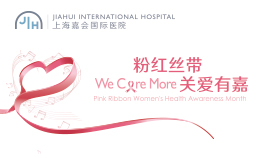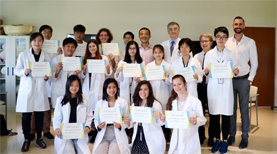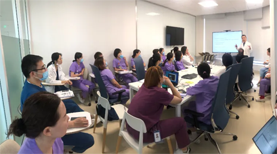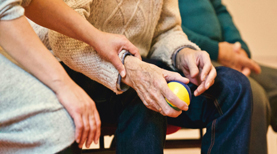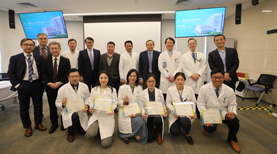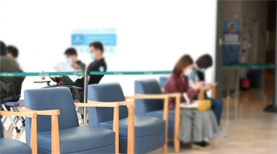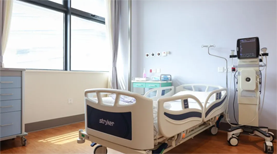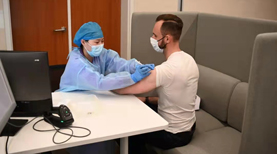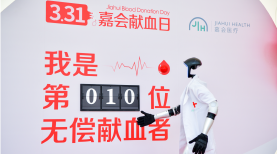What kind of disease is cancer? How should it be treated? What can I do if my family member or friend has cancer? These problems that we are all likely to face at some point in our lives...
"World Cancer Day" took place earlier this month with the theme of “I am and I will". This represents an empowering call-to-action urging personal commitment, and also represents the power of action taken now to have a positive impact on the future. To commemorate this day, Jiahui has invited Dr. Andrew Zhu, a professor at Harvard Medical School, Director of Jiahui International Cancer Center, and Director of Clinical Research at Jiahui International Hospital, to answer some common questions related to cancer prevention and treatment. Today’s article will focus on prevention.
Question 1- Is there any way to prevent or cure cancer?
Answer: Yes
The World Health Organization believes that cancer is a lifestyle disease. Smoking, obesity, lack of exercise, poor diet, alcoholism, excessive physical or mental stress, etc. are all risk factors for cancer. Quitting smoking, limiting alcohol intake, eating a balanced diet, regular exercise and maintaining your mental health can effectively reduce the occurrence of cancer.
Therefore, we can prevent and control cancer through tertiary prevention: primary prevention is causative prevention to reduce damage from external adverse factors; secondary prevention is early detection, early diagnosis, and early treatment; tertiary prevention is used to improve quality of life and extend your survival time. Through active prevention (such as health education, tobacco and alcohol control, early screening, etc.), standardized treatment and other measures, you can significantly reduce the incidence and mortality rate of cancer.
Question 2- Can cancer be contagious?
Answer: No.
(1) Cancer is caused by genetic mutations in cells in the body and is not infectious.
(2) Some bacteria (such as Helicobacter pylori) and viruses (such as human papilloma virus, hepatitis virus, Epstein-Barr virus, etc.) that are closely related to the occurrence of cancer may be infectious.
(3) Maintaining personal hygiene and a healthy lifestyle, and receiving vaccinations (such as hepatitis B virus vaccine, human papilloma virus vaccine) can help to avoid infection by related bacteria and viruses, thereby preventing the occurrence of cancer.
Question 3- Can cancer be passed on to the next generation?
Answer: Yes, in specific cases.
The vast majority (more than 90%) of tumors are not hereditary, and are mainly caused by acquired gene mutations. However, some cancers can be hereditary, and people with a family history of the following 4 types of cancer need to be extra careful:
Colorectal cancer: "familial adenomatous polyps" is an autosomal dominant genetic disease. About 30%-50% of patients have mutations in susceptibility genes, manifested as multiple colorectal polyps, which usually start in adolescence, and the possibility of developing cancer is extremely high as they age. "Lynch syndrome" is the most common hereditary non-polyposis colorectal cancer. The risk of colorectal cancer and endometrial cancer is significantly increased, accounting for about 3% of newly diagnosed colorectal cancer cases and 2% of endometrial cancer cases. The risk of ovarian, stomach, small intestine, breast, prostate, pancreas and other tumors may also be increased.
Breast cancer: Epidemiological surveys have found that 5% to 10% of breast cancers are familial. If one close relative has breast cancer, the risk of the disease will increase by 1.5 to 3 times; if two close relatives have breast cancer, the chance of developing breast cancer will increase by 7 times. The younger the onset, the greater the risk of breast cancer among relatives. Breast cancer has an obvious family genetic predisposition. People with a family history of breast cancer should pay special attention to self-examination. If early symptoms such as breast lumps and discharge are found, early diagnosis and treatment are required.
Gastric cancer: At present, the only genetically related gastric cancer is "hereditary diffuse gastric cancer", which has a low incidence. At least two people in one or two generations have the disease, and one person is younger than 50 years old. All hereditary gastric cancer is diffuse. In China, patients with gastric cancer have obvious familial clusters. The risk of gastric cancer in first-degree relatives (parents and siblings) is on average three times higher than that of the general population. This may be related to Helicobacter pylori (HP) infection. Patients with a family history of gastric cancer should be monitored and treated in a timely manner.
Liver cancer: The occurrence of liver cancer involves a variety of important risk factors, including HBV infection, chronic HCV infection, alcohol use, fatty liver disease, hereditary hemochromatosis, and liver cirrhosis. Clinical data shows that more than 50% of liver cancers are caused by chronic HBV infection, and 20% are caused by HCV infection. Hepatitis B virus is a high-risk factor that induces liver cancer. A considerable proportion of liver cancers will cluster in families. Relatives of these patients should pay more attention to early screening.
There are also many types of cancers that have genetic predispositions, and it’s not possible to list them all here. Those genetically predisposed to cancer need to be vigilant and strengthen screening, but that does not mean they need to live with a high level of anxiety. Scientific research has shown that although some cancers have genetic predispositions, maintaining a healthy lifestyle and good mental health, coupled with regular and targeted physical examinations, can prevent and treat tumors to a great extent.
Question 4- If someone in my family has cancer, does that mean that other family members should do all the tests that detect cancer?
Answer: No.
For cancers with genetic predispositions and familial clusters, early screening, regular physical examinations, and early intervention are required on the basis of a cancer risk assessment.
For cancers with obvious genetic predisposition, family members can be tested for related tumor-sensitive genes. If they carry such genes, they should intervene as soon as possible when symptoms appear. For example, BRCA-related hereditary breast cancer and ovarian cancer, up to 20% of patients have BRCA1 or BRCA2 mutations, making the risk of breast and ovarian cancer moderate to high. Regular breast self-examinations from the age of 18 can help find changes to the breasts, and a clinical breast examinations should be performed every 6-12 months starting from the age of 25.
For cancers with familial clusters, such as gastric cancer and liver cancer, Helicobacter pylori and hepatitis B virus should be tested for and treated as soon as possible.
However, for some cancers with very low genetic risk, family members do not need to spend a lot of time and money on in-depth cancer screenings, because the specificity and sensitivity of many cancer detection methods are limited, and their use is considered excessive in low-risk groups. Screening will lead to an increase in the rate of "false positives", which not only increases the psychological burden, but may also lead to a lot of unnecessary radiation exposure.
Question 5- Certain health products and supplements are not guaranteed to be effective in preventing cancer, but is it possible for them it to be harmful?
Answer: Yes.
Nowadays, many young people have very unhealthy lifestyle and dietary habits due to their fast-paced lifestyle, but they hope to ensure their intake of vitamins and nutrients by taking a lot of supplements. This method is actually not recommended. Supplements should be used in moderation. Long-term consumption of supplements may not be beneficial, and may even produce adverse reactions that affect organ function. It is still best if you get your vitamins and minerals through your diet, rather than through supplements.



